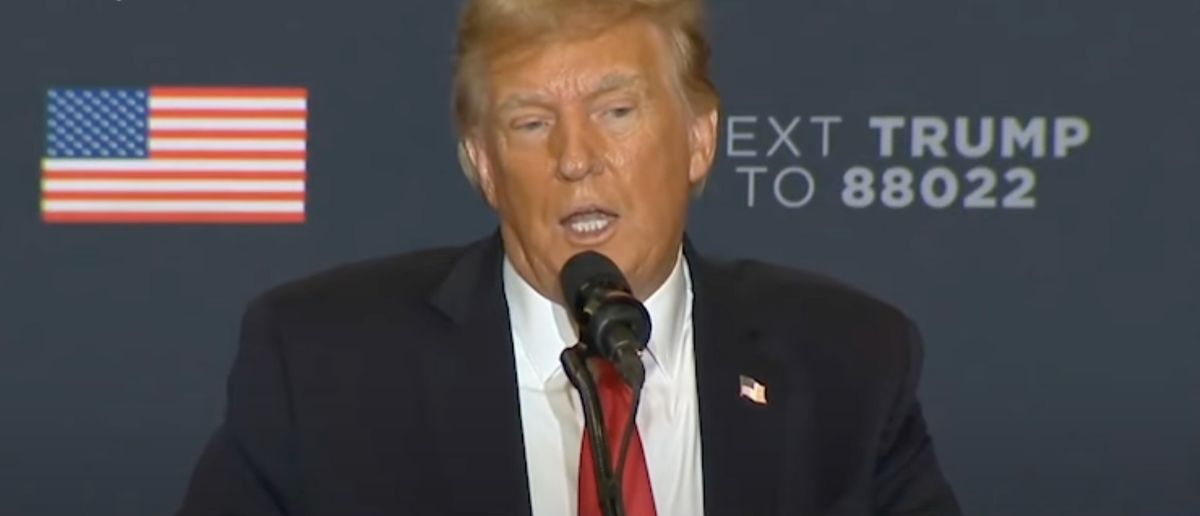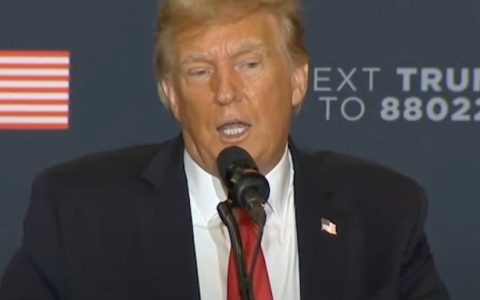
The judicial branch has been in chaos. But the higher courts are laying down the hammer.
Because a federal appeals court has handed down an earth-shattering ruling on the Trump admin and his allies.
Texas Court Upholds Voter ID for Mail-In Ballots, Sparking National Debate
A federal appeals court in Texas on Monday affirmed the state’s requirement for voter identification on mail-in ballots, a decision lauded by President Donald Trump as a significant victory. The ruling reinforces Texas’ efforts to strengthen election security measures.
Circuit Judge James Ho, appointed by Trump, wrote in a concise opinion that “mail-in ballots are not secure” and affirmed that Texas’ voter ID requirement adheres to federal law. The decision specifically validates the state’s mandate to include identification numbers on mail-in ballots, ensuring compliance with a provision of the 1964 Civil Rights Act. Trump, reacting on Truth Social, called the ruling “GREAT NEWS!!!” and urged that such measures “Should be Nationwide!!!”
The decision stems from Texas’ Election Integrity Protection Act of 2021, which aims to “exercise the legislature’s constitutional authority … to make all laws necessary to detect and punish fraud,” as outlined in the law’s text. The unanimous ruling by a three-judge panel emphasized that the ID requirement is a legitimate tool to safeguard elections without violating federal protections against discriminatory voting practices.
In 2021, Texas Democratic lawmakers attempted to block the voter ID legislation by leaving the state for Washington, D.C., in a tactic known as “quorum busting.” Their efforts to stall the bill failed, and Republican Governor Greg Abbott signed the act into law in September 2021. The same strategy was employed by over 50 Democrats on Monday to protest Republican-led redistricting plans, prompting the Texas House to issue arrest warrants.
Monday’s ruling overturns a March decision by U.S. District Judge Xavier Rodriguez, who had argued that the voter ID provisions disproportionately affected elderly voters and those with disabilities. The appeals court disagreed, with Judge Ho stating that the “number-matching requirements” are “obviously designed to confirm that every mail-in voter is indeed who he claims he is” and to verify voter eligibility.
Texas Attorney General Ken Paxton has been a vocal advocate for election integrity, highlighting potential vulnerabilities in mail-in voting. In June, his office investigated over 200 mail-in ballots cast by more than 100 suspected noncitizens in the 2020 and 2022 elections. Additionally, a recent probe uncovered a Democratic Texas judge allegedly involved in a “voter harvesting scheme” during her 2022 campaign, further fueling concerns about mail-in ballot integrity.
Paxton, a prominent Republican figure, is also challenging incumbent Senator John Cornyn in the 2026 Texas Senate primary. Early polls have shown Paxton to have a significant lead over Cornyn in the primary cycle.
It’s official. Texas CAN require photo ID with mail in ballots
The real question is why wouldn’t a state require ID vote EVERY vote???? pic.twitter.com/SLN3J8iDcq
— Kentucky Girl (@Notwokenow) August 5, 2025
Why Millions of Americans Question the Security of Mail-In Ballots
The debate over mail-in voting has intensified in recent years, with millions of Americans expressing skepticism about its security compared to in-person voting. This distrust, particularly prevalent among Republican voters, stems from a combination of historical incidents, high-profile investigations, and structural differences between the two voting methods. While mail-in voting offers convenience and accessibility, concerns about fraud, verification challenges, and systemic vulnerabilities have fueled calls for stricter regulations, as evidenced by the recent Texas court ruling.
One major factor driving skepticism is the perception that mail-in ballots are more susceptible to fraud. Unlike in-person voting, where individuals present identification and cast ballots under supervised conditions, mail-in voting relies on remote processes that some argue are harder to monitor. A 2020 report by the Heritage Foundation documented over 1,400 cases of confirmed voter fraud in the U.S., with a significant portion involving mail-in ballots. These cases include instances of ballots being stolen, forged, or cast by ineligible voters, such as noncitizens or deceased individuals.
High-profile investigations, like the one led by Texas Attorney General Ken Paxton, amplify these concerns. Paxton’s probe into over 200 mail-in ballots from suspected noncitizens in recent elections goes to show the potential for abuse. Similarly, the case of a Texas judge implicated in a 2022 voter harvesting scheme highlights how individuals in positions of power could exploit mail-in systems. Such incidents resonate with voters who worry that mail-in ballots lack the immediate oversight present at polling stations.
The verification process for mail-in ballots also raises concerns. While in-person voting typically requires real-time ID checks, mail-in ballots often rely on signature matching or ID numbers, which critics argue can be inconsistent or insufficient. A 2021 study by the Public Interest Legal Foundation found that thousands of mail-in ballots were rejected in multiple states due to signature discrepancies or missing identification, raising questions about both security and voter disenfranchisement. In contrast, in-person voting allows poll workers to directly verify voter identity, reducing the risk of errors or fraud.
Chain-of-custody issues further contribute to distrust. Mail-in ballots pass through multiple hands—voters, postal workers, and election officials—creating opportunities for tampering or loss. A 2020 U.S. Postal Service Inspector General report noted that mail delays and mishandling affected ballot delivery in several states, leading to concerns about ballots being misplaced or improperly processed. In-person voting, conducted in controlled environments, minimizes these risks, as ballots are cast and counted on-site.
Political rhetoric has also shaped public perception. Republican leaders, including President Trump, have repeatedly claimed that mail-in voting is prone to widespread fraud, despite studies showing that voter fraud is rare, affecting less than 0.01% of votes in most elections. These claims resonate with voters who view in-person voting as a more transparent and accountable process. A 2023 Rasmussen Reports poll found that 60% of Americans believe mail-in voting is less secure than in-person voting, reflecting the impact of these narratives.
On the other hand, proponents of mail-in voting argue that it is both secure and essential for accessibility. They point to safeguards like signature verification, voter ID requirements in some states, and tracking systems that allow voters to monitor their ballots. A 2022 Brennan Center for Justice report found no evidence of widespread fraud in mail-in voting during the 2020 election, emphasizing that robust security measures protect the process. However, these assurances have not fully alleviated concerns among skeptics, who often cite isolated incidents as evidence of vulnerabilities.
Stay tuned to the DC Daily Journal.





